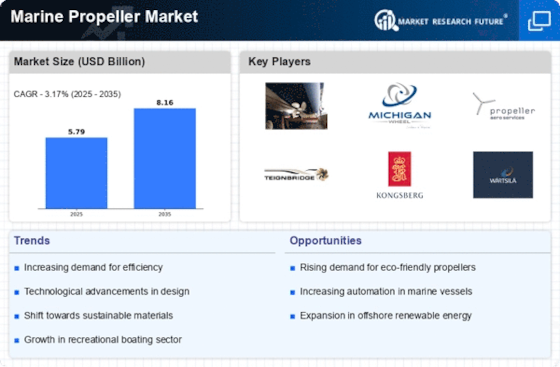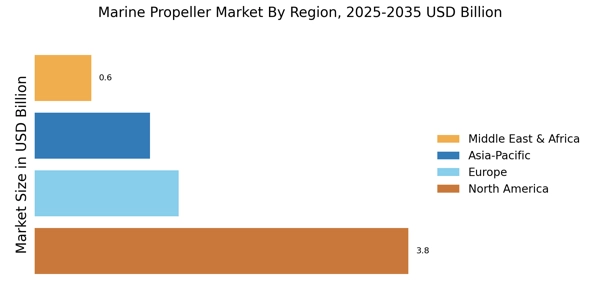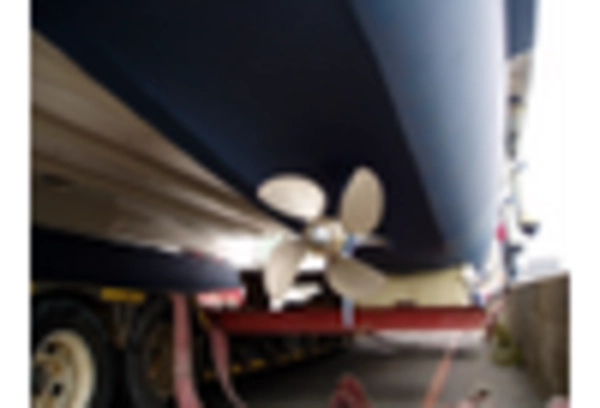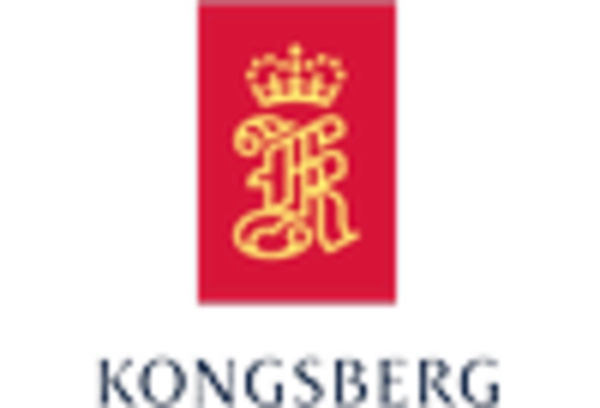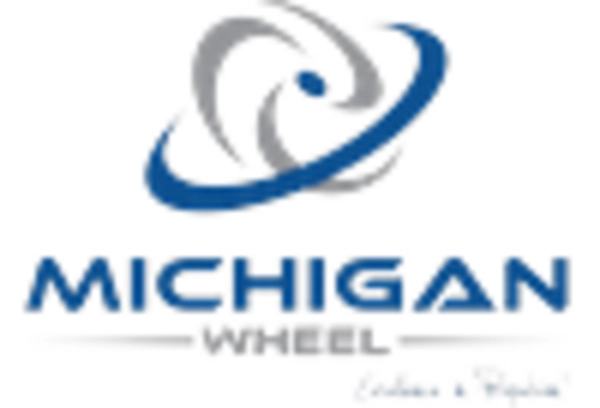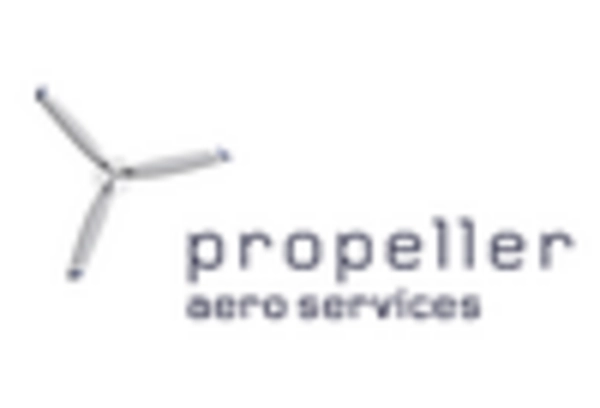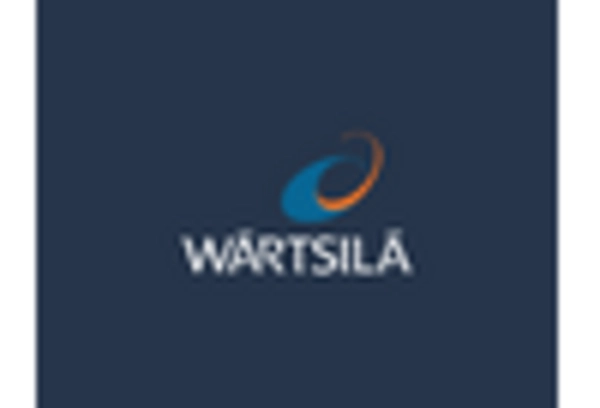Technological Integration
Technological integration within the Marine Propeller Market is reshaping traditional manufacturing and operational processes. Advanced materials, such as composites and alloys, are being utilized to enhance durability and performance. Moreover, the incorporation of digital technologies, including predictive analytics and IoT, allows for real-time monitoring of propeller performance. This integration not only improves efficiency but also reduces maintenance costs. As of 2025, the market is projected to grow significantly, with technological advancements contributing to an estimated increase in efficiency by up to 20%. Companies that embrace these innovations are likely to enhance their market position and meet the evolving demands of consumers.
Sustainability Initiatives
The Marine Propeller Market is increasingly influenced by sustainability initiatives aimed at reducing environmental impact. As regulations tighten around emissions and fuel efficiency, manufacturers are compelled to innovate. This has led to the development of eco-friendly propeller designs that enhance performance while minimizing carbon footprints. The market is witnessing a shift towards materials that are recyclable and less harmful to marine ecosystems. In 2025, it is estimated that the demand for sustainable marine propellers will account for a substantial portion of the market, driven by both consumer preferences and regulatory pressures. Companies that prioritize sustainability are likely to gain a competitive edge, as stakeholders increasingly favor environmentally responsible practices.
Growth in Recreational Boating
The Marine Propeller Market is experiencing a notable surge due to the growth in recreational boating activities. As more individuals engage in leisure boating, the demand for high-performance propellers has escalated. This trend is particularly evident in regions with expansive waterways and favorable climates. In 2025, the recreational boating segment is expected to represent a considerable share of the marine propeller market, driven by increased disposable income and a growing interest in outdoor activities. Manufacturers are responding by developing specialized propellers that cater to the unique needs of recreational boaters, thereby enhancing user experience and safety.
Expansion of Commercial Shipping
The Marine Propeller Market is significantly impacted by the expansion of commercial shipping activities. As global trade continues to grow, the demand for efficient and reliable marine propulsion systems has intensified. This trend is particularly pronounced in emerging markets where infrastructure development is underway. In 2025, the commercial shipping sector is projected to account for a substantial portion of the marine propeller market, with an emphasis on propellers that optimize fuel efficiency and reduce operational costs. Companies that focus on developing advanced propeller technologies tailored for commercial vessels are likely to thrive in this competitive landscape.
Regulatory Compliance and Standards
Regulatory compliance and standards play a crucial role in shaping the Marine Propeller Market. Governments worldwide are implementing stringent regulations aimed at enhancing safety and environmental protection in marine operations. These regulations often necessitate the adoption of advanced propeller designs that meet specific performance criteria. As of 2025, compliance with these standards is expected to drive innovation within the industry, as manufacturers strive to develop propellers that not only meet regulatory requirements but also exceed performance expectations. This focus on compliance may lead to increased investment in research and development, ultimately benefiting the market as a whole.


